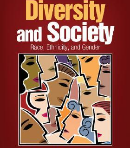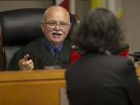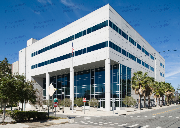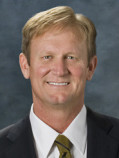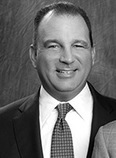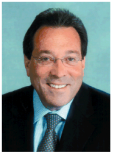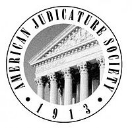JNC - Judicial Nomination Commission
House wants to give Scott sole power to appoint judges
The Tampa Tribune
by William March
March 18, 2011
TALLAHASSEE A move to restructure the Florida court system, giving more power in choosing judges to Gov. Rick Scott, moved forward in the state House Thursday despite objections that the bills are an
attempt to take control of the state judiciary. "This is a very scary thing – we're supposed to have separation of powers," said Rep. Marty Kiar, D-Davie, during debate on one of three bills that
passed through a House committee Thursday. "These amendments are direct infringements on what's supposed to be a separate branch of government." Read more, PDF below.
Florida House Proposes Giving Rick Scott Sole Power To Appoint Judges, Beach Peanuts blog
3-29-11 House wants to give Scott sole p[...]
Adobe Acrobat document [130.1 KB]
The Tampa Tribune, March 18, 2011
2011, 03-18-11, House wants to give Scot[...]
Adobe Acrobat document [52.8 KB]
- Florida Open Government Public Records
- Florida Judicial Nomination Commission Information
- Gov. Rick Scott Recent Appointments
Form 6 - Rick Scott (Fla. Gov) $147M.pdf
Adobe Acrobat document [157.8 KB]
Florida Judicial Nominating Commission - Wikipedia
Florida Judicial Nominating Commission, Wikipedia
The Florida Judicial Nominating Commissions are 26 separately constituted bodies responsible for providing the governor of Florida with a list of possible appointments to the various state courts (the Florida Supreme Court, the five Florida District Courts of Appeal, and the twenty Florida Circuit Courts).[1] These commissions are required under Article V of the Florida Constitution.
Composition and operations
The Constitution specifies that "[w]henever a vacancy occurs in a judicial office to which election for retention applies, the governor shall fill the vacancy by appointing... one of not fewer than three persons nor more than six persons nominated by the appropriate judicial nominating Commission".[2] This provision applies to Florida Supreme Court justices and Florida District Court judges. The Constitution makes a similar provision for Florida Circuit Court judges, except that such positions are normally filled in elections, and the governor may only step in where there is a vacancy well before the next election.[3] further provides that "[t]here shall be a separate judicial nominating Commission as provided by general law for the supreme court, each district court of appeal, and each judicial circuit for all trial courts within the circuit",[4] This section requires that the Commissions have uniform rules of procedure,[4] and that their proceedings and records must be open to the public.[4]
The composition of the Commissions is laid out elsewhere in the Constitution,[5] which requires that each Commission be composed of:
a. Three members appointed by the Board of Governors of the Florida Bar from among Florida Bar members who are actively engaged in the practice of law with offices within the territorial jurisdiction of the affected court, district or circuit;
b. Three electors who reside in the territorial jurisdiction of the court or circuit appointed by the governor; and
c. Three electors who reside in the territorial jurisdiction of the court or circuit and who are not members of the bar of Florida, selected and appointed by a majority
vote of the other six members of the Commission.
The Constitution prohibits judges and justices from serving on any Commission, and disqualifies Commission members from being appointed to judicial office until two years after they leave the Commission.[6] It also sets the term of office of Commission members at four years.[7] Read more
The Florida Constitutions requires that whenever a vacancy occurs in a judicial office the governor shall fill the vacancy by appointment from a list of not fewer than
three persons nor more than six persons nominated by the appropriate judicial nominating commission. (Article V, Judiciary, Section 11, Vacancies)
The Florida Constitution provides for a separate judicial nominating commission for the supreme
court, each district court of appeal, and each judicial
circuit for all trial courts within the circuit.
Uniform rules of procedure are established by the judicial nominating commissions at each level of the court system. Except for deliberations of the judicial
nominating commissions, the proceedings of the commissions and their records are open to the public.
Each judicial nominating commission is composed of nine members. (Article V, Judiciary, Section 20(5)).
Composition of the JNC is further regulated by section 43.291, Florida Statutes, Judicial nominating commissions. The JNC’s have their own Uniform Rules of Procedure. The Florida Bar wants to return to earlier
rules. The earlier rules are discussed in Merit Selection and Retention: The Great
Compromise? Not Necessarily, by Victoria Cecil Walker.
Court Review: Volume 39, Issue 3
Merit Selection and Retention: The Great Compromise? Not Necessarily.
American Judges Association
by Ms. Victoria Cecil (Walker), author, Stetson University College of Law, St. Petersburg, FL
Court Review, Volume 39, Issue 3 - Merit[...]
Adobe Acrobat document [153.3 KB]
Judicial Nominating Procedures, Standing Committee
Judicial Nominating Procedures
Standing Committee of The Florida Bar
The scope and function of the JNP Committee is to assist the Governor and the judicial nominating commissions in discharging their respective duties under Article V, Section 11, Constitution of Florida.
The committee offers assistance to the Governor with organizing and presenting an annual training program for all JNC commissioners. The training program provides authoritative information on the subject of judicial selection and the judicial nominating process. It also constitutes a forum for the mutual exchange of information by commissioners.
The committee will advise judicial nominating commissioners of new legislation or proposed legislation which is related to the judiciary and the judicial selection process. The committee will continue to suggest operating rules and procedures that it believes to be in the best interest of the commissions and the judicial nominating process. Read more
Florida Judicial Nominating Commissioner 2013 Manual (239p PDF)
- JNC: Uniform Rules of Procedure - Circuit PDF
- JNC: Uniform Rules of Procedure - Appellate PDF
- JNC: Uniform Rules of Procedure - Supreme Court PDF
Understanding the JNC Process and Application Process
Agenda [Revised: 05-06-2016]
JNC Uniform Rules of Procedure Circuit, [...]
Adobe Acrobat document [28.5 KB]
JNC Uniform Rules of Procedure _Appellat[...]
Adobe Acrobat document [32.5 KB]
JNC Uniform Rules of Procedure _Supreme [...]
Adobe Acrobat document [41.6 KB]
JNC Training Video - October 28, 2011
JNC Training The Florida Bar- Morning Session: 2 Hrs., 59 Min.
Welcome - Kara Berard Rockenbach, Chair, JNPC and Charles M. Trippe, Jr. Governor’s General Counsel
Remarks - Gwynne Young, 2011 President-Elect, The Florida Bar
Judicial Selection Process and Chairs’ Responsibilities - Moderator: Judge William D. Palmer
Panelists: Charles Trippe, Pat Christiansen, Judge Stephanie Ray, Alan Bookman, Kara Rockenbach, Ray Abadin, Theodore Small, Michael Band and Todd
Payne
JNC Training Video - October 28, 2011
JNC Training-The Florida Bar - Afternoon Session 2 Hrs., 24 Min.
Diversity Sensitivity - Arnell Bryant-Willis, Diversity Initiatives
Manager, The Florida Bar
Ethics Rules - Virlindia Doss, Executive Director, Fl Ethics Comm.
Sunshine Laws/Public Records/Redaction Issues for Jnc
Commissioners - Pat Gleason, Special Counsel For Open Government, Attorney General’s Office
The Psychology Of Effective Judicial Interviewing
- Dr. Deborah O. Day, Psy.D.
GuideBookletInternet.pdf
Adobe Acrobat document [168.0 KB]
Florida Commission on Ethics - Article I[...]
Adobe Acrobat document [17.1 KB]
Part III of Chapter 112, Florida Statute[...]
Adobe Acrobat document [56.0 KB]
Enhancement of Diversity in the Judiciary and on JNCs
Fifth Judicial Circuit - Judicial Nominating Commission
5th Circuit JNC List of Circuit Court Judicial Nominees for Marion County to fill the vacancy created by the retirement of Judge Hale Ralph Stancil
Judicial Application Data Record, with c[...]
Adobe Acrobat document [1.2 MB]
REVISED JNC Application 6-14 (blank form[...]
Adobe Acrobat document [149.5 KB]
Judicial Application Data Record (blank [...]
Adobe Acrobat document [21.1 KB]
Citrus County, Florida, Demographics
Wikipedia
As of the census[24] of 2000, 118,085 people, 52,634 households, and 36,317 families resided in the county. The population density was 78/km² (202/mi²). The 62,204 housing units averaged 41/km² (106/mi²). The racial makeup of the county was 95.05% White, 2.36% Black or African American, 0.36% Native American, 0.76% Asian, 0.03% Pacific Islander, 0.37% from other races, and 1.07% from two or more races. About 2.66% of the population were Hispanics or Latinos of any race.
The 2016 Florida Statutes
26.021 Judicial circuits; judges.—The state is divided into 20 judicial circuits:
26.021(5) The fifth circuit is composed of Citrus, Hernando, Lake, Marion, and Sumter Counties.
"The judicial nominating commission of each circuit, in submitting nominations for any vacancy in a judgeship, and the Governor, in filling any vacancy for a judgeship, shall consider whether the existing judges within the circuit, together with potential nominees or appointees, reflect the geographic distribution of the population within the circuit, the geographic distribution of the caseload within the circuit, the racial and ethnic diversity of the population within the circuit, and the geographic distribution of the racial and ethnic minority population within the circuit."
JNC_ Circuit Members - 5th.pdf
Adobe Acrobat document [40.3 KB]
Sumter County, Florida, Demographics
Wikipedia
As of the census[12] of 2000, there were 53,345 people, 20,779 households, and 15,043 families residing in the county. The population density was 98 people per square mile (38/km²). There were 25,195 housing units at an average density of 46 per square mile (18/km²). The racial makeup of the county was 82.60% White, 13.78% Black or African American, 0.51% Native American, 0.41% Asian, 0.05% Pacific Islander, 1.16% from other races, and 1.49% from two or more races. 6.29% of the population were Hispanic or Latino of any race.
Diversity on the bench?
Ocala Star-Banner
By April Warren, Staff writer
September 22, 2013
This region's judiciary looked a lot different when Sandra Edwards-Stephens became a part of it.
In 1990, when she was elected as a Marion County judge, and in 2000, when she was appointed as a circuit judge in the 5th Judicial Circuit, she was the only black person holding either position and one of the few women.
Now, as she readies for retirement — Oct. 31 will be her last day on the bench — only one part of that picture has changed.
Edwards-Stephens will leave behind 30 circuit judges in the 5th, which covers Marion, Citrus, Lake, Sumter and Hernando counties.
Some of those circuit judges are women. But there are no other minority judges.
The story is the same for the 11 county judges in the circuit's five counties: Some women, but no minorities.
This has not escaped Edwards-Stephens' notice.
"I was very aware of that fact, but I knew it was time for me to go ahead and go over into another area of my life," she said.
Her position inside the Marion County Judicial Center will be filled by Circuit Judge Anthony Tatti, a former prosecutor and Ocala resident who is transferring in from Hernando County. The person appointed to replace Edwards-Stephens will likely take Tatti's place in Hernando.
Making the appointment will be Gov. Rick Scott. Helping him will be the 5th Judicial Circuit Judicial Nominating Commission, composed of laymen and attorneys.
The commission is scheduled to interview 22 applicants this upcoming week and get Scott its list of three to six nominees by Oct. 1.
But even if Scott appoints a minority to the bench — at least two of the 22 applicants are minorities, one African-American and one Hispanic — the racial diversity picture would be the same as it was in 1990. Read more
Marion County, Florida, Demographics
Wikipedia
As of the census[11] of 2000, there were 258,916 people, 106,755 households, and 74,621 families residing in the county. The population density was 164 people per square mile (63/km²). There were 122,663 housing units at an average density of 78 per square mile (30/km²). The racial makeup of the county was 84.16% White, 11.55% Black or African American, 0.45% Native American, 0.70% Asian, 0.02% Pacific Islander, 1.69% from other races, and 1.44% from two or more races. 6.03% of the population were Hispanic or Latino of any race. According to the 2000 Census the largest European ancestry groups in Marion County were English (18.7%), German (16.7%) and Irish (14.0%).
The 2016 Florida Statutes
43.291 Judicial nominating commissions.—
Section 43.291(4), Florida Statutes (2016) "In making an appointment, the Governor shall seek to ensure that, to the extent possible, the membership of the commission reflects the racial, ethnic, and gender diversity, as well as the geographic distribution, of the population within the territorial jurisdiction of the court for which nominations will be considered. The Governor shall also consider the adequacy of representation of each county within the judicial circuit."
Lake County, Florida, Demographics
Wikipedia
As of the census[15] of 2000, there were 210,528 people, 88,413 households, and 62,507 families residing in the county. The population density was 221 people per square mile (85/km²). There were 102,830 housing units at an average density of 108 per square mile (42/km²). The racial makeup of the county was 87.46% White, 8.31% Black or African American, 0.33% Native American, 0.79% Asian, 0.04% Pacific Islander, 1.88% from other races, and 1.18% from two or more races. 5.61% of the population were Hispanic or Latino of any race.
The Florida Bar President’s
Task Force Report Enhancement of Diversity in the Judiciary and on JNCs
Appendices to Task Force Report
Press Release of The Florida Bar
Hernando County, Florida, Demographics
Wikipedia
As of the census[14] of 2000, there were 130,802 people, 55,425 households, and 40,016 families residing in the county. The population density was 106/sq mi (274/km²). There were 62,727 housing units at an average density of 51/sq mi (131/km²). The racial makeup of the county was 92.85% White, 4.07% Black or African American, 0.30% Native American, 0.64% Asian, 0.02% Pacific Islander, 0.98% from other races, and 1.13% from two or more races. 5.04% of the population was Hispanic or Latino of any race. 91.1% spoke English, 4.5% Spanish, 1.1% German and 1.1% Italian as their first language.
Bar president dismayed by lack of judicial diversity, Ocala Star-Banner, Jun 25, 2014
Florida's courts
should reflect state's diversity
Sun Sentinal, March 24, 2014
Scott should loosen grip on judicial appointments, Sun Sentinal, November 1, 2013
Diversity enriches our legal
system
Sun Sentinal, by Quentin Morgan, June 10, 2014
Gov. Scott not concerned about diversity in the
courts
Sun Sentinal, Marni Lawrence, Boca Raton, April 3, 2014
Remember Gov. Rick Scott's lack of support for
diversity
Sun Sentinal, Don Lerman, Boynton Beach, April 2, 2014
Nominees for 5th Judicial Circuit judge
Ocala Star-Banner
November 13, 2015
The 5th Judicial Circuit Nominating Commission has nominated these six lawyers to Gov. Rick Scott, who will choose one to replace retiring Circuit Judge Hale Stancil. The judicial nominees are, from left in the top row, Jennifer Bass, William Gladson and Katherine Glynn; and from left in the bottom row, Susan Keith, Paul Militello and Gary Sanders. Staff and courtesy photos. Read more
Nominees for 5th Judicial Circuit judge.[...]
Adobe Acrobat document [36.3 KB]
Jennifer Bass appointed to replace retiring circuit judge Ocala Star-Banner
Staff Report, December 18, 2015
Gov. Rick Scott on Friday appointed Assistant State Attorney Jennifer Bass to the circuit bench. She will take the seat of Hale Stancil, who is retiring at the end of the year. Bass, 41, of Ocala, has been a prosecutor since 2009 and previously was a law clerk to the federal Judge Gary R. Jones. Bass received her bachelor’s and law degrees from the University of Florida. Read more
 Newly appointed Circuit Judge Jennifer Bass poses for a photo in her chambers at the Marion County Judicial Center in Ocala, Fla. on Thursday, Jan. 28, 2016.
Newly appointed Circuit Judge Jennifer Bass poses for a photo in her chambers at the Marion County Judicial Center in Ocala, Fla. on Thursday, Jan. 28, 2016.
Meet the new judge: Former prosecutor Jennifer Bass
Ocala Star-Banner
By Nicki Gorny, Staff writer
February 1, 2016
When Assistant State Attorney Janine Nixon moved to Marion County in 2005 she found a mentor in Jennifer Bass. Bass was a docket manager in the felony division, Nixon remembered, and so supervised Nixon as a docket attorney. And although Nixon wasn't new to the profession, having held the same title in Broward County, Bass managed to influence her work positively.
Take filing decisions, for example, when assistant state attorneys charge individuals with crimes.
Nixon remembered that Bass would push her to get more information, often interviews beyond a law enforcement officer's account, before filing a charge against someone. As Bass would point out at the time, an officer's or deputy's account -- while not unreliable or unfair -- tells just one side of the story.
"She always encouraged me to remember what I was doing: charging someone with a felony crime," Nixon said.
So when Bass called her this December to tell her that Gov. Rick Scott had appointed her as Marion County's newest circuit judge, Nixon said she was thrilled for her longtime friend and colleague. She hadn't known that Bass had long dreamed of being a judge, she said, but knew that the position was meant to be.
"She's just that kind of even-keeled, fair-minded person that you would think of when you think judge," Nixon said. Read more
Meet the new judge_ Former prosecutor Je[...]
Adobe Acrobat document [43.0 KB]
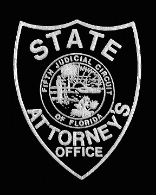 Bass was appointed to the 5th Judicial Circuit as a judge on Dec. 18, 2015 and her term started on Jan. 1, 2016. She started seeing cases on Jan. 11, she said.
Bass was appointed to the 5th Judicial Circuit as a judge on Dec. 18, 2015 and her term started on Jan. 1, 2016. She started seeing cases on Jan. 11, she said.
Bass, an alumna of the University of Florida's Levin College of Law who has spent most of her career at the local State Attorney's Office, made the formal transition to circuit judge on Jan. 1. She said she has spent much of the last month learning the ropes, spending a week at the first phase of the Florida Judicial College in Orlando and independently studying up on family law. This includes topics such as divorce, adoption, custody or time-sharing, domestic violence injunctions and more. She's also been in a courtroom, albeit in borrowed robes, to interact with the litigants now assigned to her through the many files she inherited from Circuit Judge Anthony Tatti.
Tatti this month replaced Circuit Judge Hale Stancil on the felony docket; Stancil's retirement at the end of December created the open judgeship that Scott selected Bass to fill.
"I certainly have a lot of work to do," Bass said, adding, "I'm very excited about learning a new area of the law."
Bass has dreamed of being a judge since she was a young girl, she said, and took the first step toward that goal when she became the first member of her family to attend college. A Gainesville native, she stayed local as she majored in history at UF and then enrolled in law school there.
Bass, who said she comes from a modest background, said she was drawn to a legal career in part out of appreciation for the opportunities she had been given.
"In this country individuals can change their circumstances if they're willing to work hard," she said. "So many of the opportunities that we have as citizens come from the foundation of our legal system and the rights that we have in this country."
She connected with the State Attorney's Office in Marion County as an intern even before graduating law school in 1999 and stayed there to prosecute a wide variety of misdemeanor and felony cases for about 10 years. In 2008 she briefly left for a term as a law clerk with federal magistrate Gary R. Jones in U.S. District Court. She returned to the Marion County Judicial Center the following year, and most recently worked as the supervising attorney of County Court.
When Stancil last year announced his retirement, Bass said she considered whether that experience would enable her to be a quality judge. It would be the first time she put her name in for a judgeship, she said, and she wanted to be sure she would do well if chosen.
Her years as an assistant state attorney had given her valuable hands-on experience in the courtroom. And although her courtroom experience lay on a felony docket, and she knew the new judge would handle a family law docket, she said she had some familiarity with family law issues through overlap in her felony cases.
She was familiar with domestic violence injunctions, for example, since one incident can spark both a felony charge and an injunction.
Her stint in U.S. District Court had likewise been valuable in preparing her for a circuit judgeship, she said. This had tasked her, in part, with drafting memos, motions and orders. She said writing is important for a judge, but not emphasized among prosecutors.
"It's a very different perspective than being a party or a lawyer," she said of her time working for Jones. "It gave me an idea of what the viewpoint might be from where I am now."
After consulting with colleagues and with her family, including 8- and 11-year-old daughters, she decided the timing was right to submit an application. The 5th Judicial Nominating Commission selected her as one of six candidates through a vetting process in October, and in December Scott made his announcement.
Brad King, state attorney for the 5th circuit and Bass' longtime supervisor, said Scott made a good decision.
"She's very bright. She works hard. She researches well to know the law," he said, pointing specifically to the years she spent prosecuting cases that involved wiretaps. He recalled that she would regularly read up and what is and is not permissible in this area.
And her personality also makes her a good fit for a circuit judge, King said: polite, but firm enough to ensure that things are done correctly and orderly.
"Some judges will take the time to help lawyers develop," he added. "She would be one that a new lawyer, after their case is over, could go to her and say, 'Could you critique me?'"
Bass, for her part, said she has benefited from a vast pool of knowledge and experience already on the bench. She said she especially looks up to Circuit Judge Sue Robbins, who is the administrative judge for family law in the circuit, as setting a standard through her passion and work ethic.
And, she added, Robbins has a terrific sense of humor. (Nixon, Bass' longtime colleague, said the same of Bass.)
Although Marion County still has no minority judges, Bass' appointment notably brings the local judicial roster to one-third female. While Bass noted that her appointment also coincided with the first time that the Judicial College, which draws new judges all over Florida, had more female than male judges, she said she believed that quality matters more than diversity in a judge.
"I would expect the people of this circuit to want the most qualified person in the job, whether male or female," she said. "As a practicing lawyer, I always wanted a judge who was hard-working, had integrity, was prepared and had a servant's heart. I think that's really important."
King said he was disappointed to see Bass leave his office, but happy to see her in her new position.
"If good people are in a place where they have a bigger impact on the system," he said, "then the system is better off."
Contact Nicki Gorny at 352-867-4065, nicki.gorny@ocala.com or @Nicki_Gorny.
13th Circuit JNC - Judicial Nominating Commission
13th Circuit JNC Interviews, June 15, 2010, Tampa, Florida
Applicants to the Judicial Nominating Commission (JNC) for vacant judicial seats are not accountable to the public as they would be during elections for the same
judicial offices.
The Florida Constitutions requires that whenever a vacancy occurs in a judicial office the governor shall fill the vacancy by appointment from a list of not fewer than three persons nor more than six
persons nominated by the appropriate judicial nominating commission.
This video shows applicants to the 13th Circuit JNC refusing to answer voluntary follow-up questions after their mandatory interview with the JNC. Gov. Charlie Crist convened the 13th Circuit JNC to
fill the circuit court vacancy created when he appointed the Honorable Anthony Black to the Second District Court of Appeals.
Filmed June 15, 2010 at the Law Offices of Bajo Cuva, PA, Tampa, Florida. Produced by Neil Gillespie for the Justice Network.
Would you like this garbage can moved closer in case you have the baby?
I witnessed the following while attending a Judicial Nominating Commission (JNC) interview in Tampa June 15, 2010 as a civilian observer. This was the 13th Circuit
JNC, Hillsborough County, Florida. One commission member asked an applicant for judge if the applicant had seen any behavior from a judge in court that was unprofessional.
The applicant responded that a judge said to a woman who was obviously pregnant and about to give birth, words to the effect "Would you like this garbage can moved closer to you in case you have the
baby?" The judge was referring to a trash can in the courtroom.
The JNC asked this question of a number of applicants. Some applicants responded with examples of judicial misconduct. Others applicants were evasive or brushed-off the question. My notes show that
applicants who described bad behavior by judges to the JNC were nominated at a rate lower than applicants who did not describe bad behavior by judges to the JNC. Initially I dismissed this as
coincidence.
But in hindsight, and with the benefit of subsequent information, in my opinion it is possible that this question is used as a screening tool to eliminate applicants critical of sitting judges, to
ensure that nominees, if appointed, will be team players and look the other way if they see another judge engage in misconduct.
Read the email between JNC Chair Pedro Bajo and Neil Gillespie discussing the ‘garbage can’ comment, provided below in PDF.
2010, 07-01-10, email, Pedro Bajo to NJG[...]
Adobe Acrobat document [43.0 KB]
Here are some other responses to the question:
Applicant "B" noted an instance in traffic court where a pro se litigant was "destroyed" by clearly inadmissible evidence from law enforcement, and that a judge should step in for pro se litigants
where appropriate.
Applicant "C" noted some judges willfully embarrass lawyers in open court, ask to see their bar card, or inquire where they went to law school.
Applicant "D" complained about angry judges "yelling" at participants during litigation.
Chris A. Barker gone as Vice-Chair, 13th Circuit JNC
Mr. Edward W. Gerecke advanced to the position of Chair instead of Mr. Barker. The Vice Chair is now S. Cary Gaylord.
2010-11 members of the 13th Circuit JNC.[...]
Adobe Acrobat document [14.7 KB]
Better qualified applicants June 15, 2010 JNC interviews
2010, 08-10-10, NJG to Rick Figio, bette[...]
Adobe Acrobat document [512.2 KB]
2010, 08-03-10, NJG to Rick Figio, bette[...]
Adobe Acrobat document [186.1 KB]
Letter memorandum, JNC complaint
2010, 07-28-10, NJG to Rick Figlio, re J[...]
Adobe Acrobat document [64.8 KB]
re Bar Rule 4-8.3 Reporting Misconduct
2010, 07-22-10, NJG to Mr. Bajo, re Rule[...]
Adobe Acrobat document [1.1 MB]
Re JNC Complaint
2010, 07-22-10, NJG to Rick Figlio, re J[...]
Adobe Acrobat document [1.7 MB]
Re June 15, 2010 JNC Interviews
2010, 07-19-10, NJG to Rick Figlio, re J[...]
Adobe Acrobat document [488.2 KB]
2010, 07-12-10, Rick Figlio, reply to NJ[...]
Adobe Acrobat document [110.2 KB]
2010, 06-29-10, NJG response to Rick Fig[...]
Adobe Acrobat document [196.8 KB]
Chief Inspector General Case #201003040004 June 2010
UPDATE June 25, 2010
The Chief Inspector General has concluded its investigation into my complaint against Mr. Barker with a finding of "unfounded" and the following recommendation:
"It is recommended that the Commission consider expanding the current practice of disclosing conflicts of interest and obtaining recusals from the process to include a written disclosure and written
documentation of the recusal for each selection process."
The only member of the Thirteenth Circuit JNC to agree with me that Mr. Barker's recusal due to his potential conflict of interest has brought discredit to the JNC was Ms. Barbara Wilcox. This is
from the report:
"When asked if she believed that Mr. Barker's recusal due to his potential conflict of interest has brought discredit to the Thirteenth Judicial Nominating Commission, Ms. Wilcox said "yes" adding
that it was starting to look that way."
Ms. Wilcox is a civilian non-lawyer member of the JNC.
Read the report here online (PDF) and
below.
Chief-Inspector-General-Case-20100304000[...]
Adobe Acrobat document [2.2 MB]
In my view, the report failed to note Mr. Baker's violation of Art. X, Sec 3, Fla. Const. for his vacancy in office created by multiple conflicts with Mr. Rodems applying for every open judicial vacancy:
Article X, Section 3, Florida Constitution
SECTION 3. Vacancy in office.—Vacancy in office shall occur upon the creation of an office, upon the death, removal from office, or resignation of the incumbent or the incumbent’s succession to another office, unexplained absence for sixty consecutive days, or failure to maintain the residence required when elected or appointed, and upon failure of one elected or appointed to office to qualify within thirty days from the commencement of the term.
Constitution Of The State of
Florida
As Revised in 1968 and Subsequently Amended
The Constitution of the State of Florida as revised in 1968 consisted of certain revised articles as proposed by three joint resolutions which were adopted during the
special session of June 24-July 3, 1968, and ratified by the electorate on November 5, 1968, together with one article carried forward from the Constitution of 1885, as amended. The articles proposed
in House Joint Resolution 1-2X constituted the entire revised constitution with the exception of Articles V, VI, and VIII. Senate Joint Resolution 4-2X proposed Article VI, relating to suffrage and
elections. Senate Joint Resolution 5-2X proposed a new Article VIII, relating to local government. Article V, relating to the judiciary, was carried forward from the Constitution of 1885, as
amended.
Sections composing the 1968 revision have no history notes. Subsequent changes are indicated by notes appended to the affected sections. The indexes appearing at the
beginning of each article, notes appearing at the end of various sections, and section and subsection headings are added editorially and are not to be considered as part of the
constitution.
PREAMBLE
We, the people of the State of Florida, being grateful to Almighty God for our constitutional liberty, in order to secure its benefits, perfect our government, insure domestic tranquility, maintain public order, and guarantee equal civil and political rights to all, do ordain and establish this constitution.
UPDATE June 2, 2010
Pedro F. Bajo, Jr., Esq., Chair of the 13th Circuit JNC, confirms that vice chair Chris Barker once again recused himself from the JNC process, as his law partner Ryan
Rodems has applied for the circuit court vacancy of Judge Black.
Because of this ongoing conflict, Mr. Barker has not been able to attend fully to the duties of JNC commissioner to which he was appointed. This leaves the 13th Circuit JNC short of the nine members required by law. Mr. Barker has been unable to serve for 2009 and 2010.
UPDATE May 14, 2010
Pedro F. Bajo, Jr., Esq., Chair of the 13th Circuit JNC, confirms that vice chair Chris Barker once again recused himself from the JNC process, as his law partner Ryan
Rodems has applied for the county court vacancy of Judge Huey.
Because of this ongoing conflict, Mr. Barker has not been able to attend fully to the duties of JNC commissioner to which he was appointed. This leaves the 13th Circuit JNC short of the nine members required by law. Mr. Barker has been unable to serve for 2009 and 2010.
JNC Complaint 13th Circuit - January 15, 2010
Ryan Christopher Rodems wants to be a judge. It is a several-year ambition according to his applications for judge. (question #53). His law partner Chris A Barker
applied to become a commissioner on the 13th Circuit JNC. When Mr. Barker applied he knew his close friend and law partner Mr. Rodems wanted to become a judge. That would create a substantial
conflict if Mr. Rodems applied to the 13th Circuit JNC, but Mr. Barker failed to disclose this conflict on his questionnaire.
Question #29 on Mr. Barker’s questionnaire asked, "Do you know of any reason why you will not be able to attend fully to the duties of the office or position to which you have been or will be
appointed?" Mr. Barker responded "no". After he was appointed, Mr. Barker has not been able to serve for more than a year due to the conflict with Mr. Rodems, who applied for every
vacancy.
In 2008 Mr. Rodems applied for vacancies in the 10th Circuit JNC where his family lives and he was raised. Mr. Rodems discusses this on his application, question
#53:
"In early 2008, a circuit vacancy occurred in Polk County. My parents still live in the same neighborhood where I grew up, and I still have-many friends and clients in Polk County. I believed it was
the right time in my career to pursue a judicial appointment. I was proud to be nominated by the JNC in Polk County for each of the three circuit vacancies in 2008. I interviewed with Governor Crist,
and I received positive feedback, including from the Governor's General Counsel and legal staff. The Governor appointed three county court judges to fill the circuit vacancies, and the Governor's
General Counsel encouraged me to continue to pursue judicial appointment. Several members of the Governor's legal staff discussed the issues posed by appointing applicants from outside a circuit, and
they suggested that I apply in the circuit where I lived and practiced."
So Mr. Rodems has a built-in excuse for applying to the same JNC where his friend and law partner is the Vice-Chair - the Governor's legal staff suggested that he apply in the circuit where he lived
and practiced.
Mr. Rodems has practiced law with Mr. Baker in the 13th Judicial Circuit for most of his career, initially with the Jonathan Alpert firm, and with his own firm
Barker, Rodems & Cook since 2000.
On December 22, 2009 while searching the website of the 13th Judicial Circuit for a remedy to the ongoing misconduct of Mr. Rodems in my lawsuit with his firm, I found information about the vacancy
created by the retirement of Judge Raul C. Palomino, Jr., the application of Mr. Rodems for the vacancy, and Mr. Barker’s position on the JNC.
January 15, 2010 I made a complaint, with an addendum January 19, 2010. After meeting with the 13th Circuit JNC Chair Mr. Bajo February 24, 2010 I withdrew my complaint against him March 3, 2010. The
following day General Counsel Rob Wheeler announced the complaint against Mr. Barker would be investigated by the Chief Inspector General.
JNC Complaint of Misconduct and related documents
2010, 01-15-10, JNC Complaint to Gov.Cri[...]
Adobe Acrobat document [970.0 KB]
2010, 01-19-10, Addendum to Jan-15-10 JN[...]
Adobe Acrobat document [817.4 KB]
2010, 03-03-10, NJG to JNC withdrawal co[...]
Adobe Acrobat document [460.6 KB]
2010, 03-04-10, email, Rob Wheeler, inve[...]
Adobe Acrobat document [9.3 KB]
2010, 03-15-10, email, S Cary Gaylord, s[...]
Adobe Acrobat document [77.6 KB]
2010, 03-17-10, NJG to Rob Wheeler, BRC [...]
Adobe Acrobat document [527.4 KB]
2010, 04-10-10, NJG to S Cary Gaylord, h[...]
Adobe Acrobat document [523.6 KB]
2010, 04-13-10, reply, S Cary Gaylord, e[...]
Adobe Acrobat document [79.5 KB]
2010, 04-20-10, NJG to S Cary Gaylord, i[...]
Adobe Acrobat document [277.3 KB]
2010, 04-23-10, reply of S Cary Gaylord [...]
Adobe Acrobat document [80.0 KB]
Application & Appointment Mr. Baker JNC Commission
2007, 07-11-07, JNC application, Chris A[...]
Adobe Acrobat document [596.9 KB]
2007 financial disclosure, Chris Barker,[...]
Adobe Acrobat document [229.3 KB]
2008 financial disclosure, Chris Barker.[...]
Adobe Acrobat document [138.7 KB]
2008, 04-28-08, Barker Appointment Lette[...]
Adobe Acrobat document [64.2 KB]
2009 list of members, 13th Circuit JNC
2009, list of commission members, 13th C[...]
Adobe Acrobat document [14.9 KB]
Client-turned-adversary accuses Tampa law firm of
conflict in judicial bid
St. Petersburg Times
By Colleen Jenkins
January 22, 2010
TAMPA - Chris Rodems wants to be a judge. In the past year, he has applied for five openings on the Hillsborough County bench.
One of his law partners and close friends, Chris Barker, is vice chairman of the commission that has considered Rodems' applications and nominated him for several of the positions.
Is that a conflict of interest?
Neil Gillespie thinks so. The former Tampa Bay area resident, who is involved in a lengthy legal dispute with Barker and Rodems' law firm, filed a complaint this month with the Governor's Office. He
argues, among other things, that Barker's position gives his law partner an unfair advantage.
But Barker and Pedro Bajo Jr., chairman of the 13th Circuit Judicial Nominating Commission, said they've taken steps to avoid even the appearance of impropriety.
Each time Rodems has applied, Barker - one of nine commission members - has not participated in any interviews, deliberations or votes involving his law partner or has recused himself from the entire
nominating process.
"We all know several of the applicants in some fashion," Bajo said. "So the question is, does it create a conflict or not create a conflict? We try to bend over backwards to make sure any perceived
conflicts are addressed appropriately."
The commission vets the candidates and recommends a short list to Gov. Charlie Crist, who makes the final decision. "Just as I don't have the JNC in my pocket, I definitely don't have him," Barker
said. Read more on the St. Pete Times, and the
comments too
Colleen Jenkins is a courts reporter in Tampa. She writes about judges, lawyers, criminal and civil cases and anything else that goes on at the courthouse.
Application of Mr. Rodems for county judge Nov-17-09
2009, 11-17-09, application of Mr. Rodem[...]
Adobe Acrobat document [3.3 MB]
2009, 12-09-09, County Court applicants.[...]
Adobe Acrobat document [15.0 KB]
2009, 11-13-09, County Court vacancy ann[...]
Adobe Acrobat document [15.6 KB]
Application of Mr. Rodems for circuit judge Jan-04-10
2010, 01-04-10, application of Mr. Rodem[...]
Adobe Acrobat document [3.2 MB]
County Court vacancy of Judge Huey
2010, 04-08-10, county court vacancy, 13[...]
Adobe Acrobat document [15.7 KB]
Application (2-for) of Mr. Rodems for judge Apr-09-2010
2010, 04-09-10, APPLICATION of Mr. Rodem[...]
Adobe Acrobat document [4.0 MB]
Circuit Court vacancy of Judge Black
Circuit Court vacancy of Judge Black
2010, 06-17-10, nominations sent to Gov.[...]
Adobe Acrobat document [16.2 KB]
Circuit Court vacancy of Judge Black
2010, 05-28-10, JNC interview schedule, [...]
Adobe Acrobat document [14.5 KB]
Circuit Court vacancy of Judge Black (revised)
2010, 05-21-10, list of applicants for c[...]
Adobe Acrobat document [14.9 KB]
Circuit Court vacancy of Judge Black
2010, 05-19-10, list of applicants for c[...]
Adobe Acrobat document [14.7 KB]
Circuit Court vacancy of Judge Black
2010, 04-27-10, vacancy announced, 13th [...]
Adobe Acrobat document [16.0 KB]
County Court vacancy of Judge Huey
for the County Court vacancy of Judge Huey
2010, 05-28-10, nominations announced fo[...]
Adobe Acrobat document [16.5 KB]
2010, 05-18-10, JNC interview schedule, [...]
Adobe Acrobat document [15.1 KB]
County Court vacancy of Judge Huey
2010, 05-05-10, applicants, 13th Circuit[...]
Adobe Acrobat document [15.5 KB]
Sen. J.D. Alexander, pay Florida judges bonuses
Sen. J.D. Alexander suggests paying Florida judges
bonuses to hear more cases
Times/Herald Tallahassee Bureau
By Steve Bousquet
March 23, 2011
An incentive plan for trial court judges to speed up their dockets gets a hostile reception
TALLAHASSEE - As Florida courts groan under the weight of heavy case backlogs, a powerful senator is suggesting a highly controversial remedy: paying judges more money to hear more cases. Republican
Sen. J.D. Alexander, the influential budget chairman from Lake Wales, wants to pay trial court judges up to an additional $12,000 a year if they meet specific numerical quarterly performance goals.
The extra money would be dished out in $3,000 increments. Read more
Sen. J.D. Alexander suggests paying Flor[...]
Adobe Acrobat document [58.4 KB]
Hillsborough FL Judges Work Part-time, Get Full Pay
Some Hillsborough Co., Florida judges apparently only work part-time hours while collecting a full-time salary of $142,178 plus benefits. This came to my attention June 15, 2010 during the 13th Circuit Judicial Nominating Commission (JNC) interviews to fill the vacancy created when Judge Black was appointed to the 2dDCA. I attended the interviews as a nonlawyer observer. The JNC interviews are open to the public. The JNC was so concerned about judicial workloads that applicants were specifically asked what hours they planned to keep if appointed.
Applicant Rodems described to the JNC criticism he heard about Hillsborough judges leaving court early on Fridays. The situation was so bad, Rodems told the JNC, that one could "fire a bullet" in the Hillsborough courthouse it was so empty. The email between JNC Chair Pedro Bajo and Neil Gillespie discussing Rodems’ "fire a bullet" comment is provided below in PDF.
2010, 07-05-10, email, Pedro Bajo to NJG[...]
Adobe Acrobat document [44.7 KB]
JNCs: Return to the Way We
Were
The Florida Bar Journal
by Jesse H. Diner
March, 2010 Volume 84, No. 3
More independent. Less political.
That crucial combo had guided appointments to Florida’s judicial nominating commissions and had worked well for nearly three decades — until Gov. Jeb Bush decided to exercise more control in
2001.
I strongly favor restoring the JNC process to the way it was before 2001 and the way Florida voters originally intended.
Here’s a brief history:
In 1972, Florida voters were given an opportunity to vote on a complete revision of article V of the Florida Constitution. One of the amendments to article V was the creation of judicial nominating
commissions that would supply a list of qualified names to the governor to fill interim judicial vacancies on county, circuit, and appellate courts.
In this tried-and-true system, the governor named three members of each JNC, none of whom were required to be lawyers. The Florida Bar named three lawyer members. Then, by a majority vote, those six
members named the remaining three members, all lay people. So, there were three appointing authorities to each JNC.
That original JNC process was set up to depoliticize the judicial appointment process and underscored our founding fathers’ wisdom that an independent and impartial judiciary serves as the vital
check and balance on the other two branches of government.
But in 2001, the Legislature, heeding the wishes of the governor, put in place our current system that tips the scales toward a more politicized process. We went from three appointing authorities to
one: the governor.
Now, the governor has the final choice on all nine members of Florida’s 26 separate JNCs, by naming five members outright and also wielding the power to reject the Bar’s remaining four nominees as
many times as the governor wishes.
At the time of this drastic change in law, there was some relief that at least it wasn’t the original House bill that had sought to purge the Bar from the JNC process altogether and hand over all
power to an elected governor.
But while the Bar is still involved in the JNC process, our limited role is by way of our Judicial Nominating Procedures Committee, devoted to upholding the integrity and striving to improve the
judicial nominating process.
The statutory changes made in 2001 gave the governor the sole responsibility for appointments to each JNC, appointments to the bench from the JNC, and investigating alleged JNC misconduct.
While the selection process was never totally depoliticized even under the old system, nor is any system perfect, the prior method appeared less subject to legitimate criticism we have seen and heard
over the last few years.
There have been charges that judicial candidates have been asked inappropriate and political questions. There’s been concern that the JNC process has lost its nonpartisan, independent nature,
resulting in fewer applicants to serve on JNCs or on the bench, because they were from the wrong political party.
Last year, the JNC process was litigated at the Florida Supreme Court, when Gov. Charlie Crist and the Fifth District Court of Appeal JNC were at a stalemate. The Fifth DCA JNC had sent six names to
the governor to replace Judge Robert Pleus, Jr., who had reached the mandatory retirement age. But Gov. Crist returned the list, asking the JNC to reconsider because he wanted more diversity, noting
that two apparently qualified African-American candidates had applied, but were not nominated.
The Fifth JNC refused, with members saying they had chosen the most qualified applicants, and there was no constitutional authority for them to reopen deliberations. Crist refused to fill the
vacancy, and Pleus filed for writ of mandamus asking the high court to order Crist to fill the vacancy. On July 2, 2009, the unanimous court noted "the absence of any language granting the governor
authority to reject the JNC’s certified list of nominees or to extend the time in which the appointment for judicial office must be made."
In finding for Pleus, the court withheld issuing the mandamus writ, believing that Crist would comply with the court’s opinion, and he did. On August 4, 2009, Crist appointed 18th Circuit Judge Bruce
Jacobus to the Fifth DCA.
On that legal challenge, the Florida Senate Judiciary Committee issued a September 2009 report that noted that the Supreme Court’s Pleus opinion "emphasized that the origin and purpose of article V,
section 11, was to place restraints on the governor’s appointment power and to strengthen the nonpartisan selection of the judiciary."
This is not a Republican or Democratic, conservative or liberal issue, but a cry to maintain a fair and independent judiciary.
I think we should return to the JNC process voted on by the people of Florida in 1972 that has a proven track record of working well.
I think we should give a great gift to the people of Florida — and return to them an important judicial nominating process that was not broken in the first place.
2010, March, Florida Bar Journal, JNC's,[...]
Adobe Acrobat document [44.3 KB]
The Florida Bar Journal
By Gary Blankenship, Senior Editor
March 1, 2001
A First District Court of Appeal Judicial Nominating Commission member who asked tough questions of a judicial applicant has been cleared of charges she went too far by a special investigating
panel.
The panel, in a report released February 8, also recommended that all JNCs follow the practice of bringing any negative information they have to the attention of an applicant during interviews. If
the applicant isn't given a chance to respond, then the information shouldn't be used in commission deliberations, the panel advised.
Bar President Herman Russomanno appointed the special Panel of Inquiry after Ted Hires, Sr., of The Justice Coalition, based in Jacksonville, filed a complaint. He alleged that Commissioner Elizabeth
White had a conflict of interest and that her question of applicant Scott Makar brought discredit on herself and the JNC process.
Russomanno, in accepting the panel's report, endorsed its recommendation that JNCs adopt a uniform policy for dealing with negative information. He also called for a hotline so JNC members can call
and seek advice from experienced commissioners. more
Panel clears First DCA JNC.pdf
Adobe Acrobat document [59.3 KB]
American Judicature Society
Wikipedia
The American Judicature Society (AJS) (founded 1913) is an independent, nonpartisan, national organization of judges, lawyers, and interested members of the public whose mission is to improve the American justice system - to "secure and promote an independent and qualified judiciary and fair system of justice." Its membership roster includes renowned members of the legal profession, including U.S. attorneys general and Supreme Court justices. Read more
After 101 years of operation, the American Judicature Society is dissolving. American Bar Association, By Debra Cassens Weiss.
The Ethical Demise Of The American Judicature Society, Forbes, by Mark Chenoweth, October 14, 2014.
JNC_Survey_ReportFINAL3_92E04A2F04E65.pd[...]
Adobe Acrobat document [7.2 MB]











